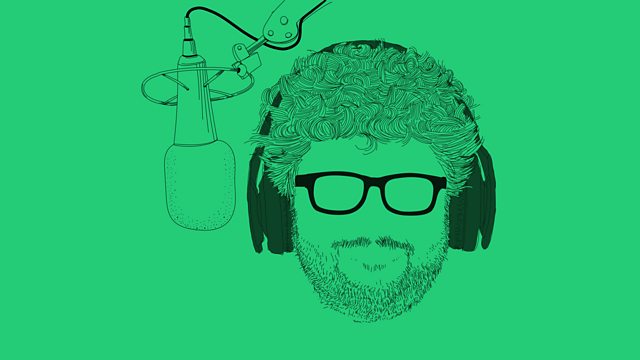Style Counsel
Tom Service dispenses style counsel - what are the different eras in music history, and how can you tell them from each other? And is there a distinguishing contemporary style?
Tom Service dispenses Style Counsel - what are the different eras in music history, and how can you tell them from each other? How did they come about and grow and change? And as Radio 3 is about to launch its New Year New Music season, is there an overarching distinguishing style in music today? Tom is joined by composer and writer Neil Brand at the piano for some answers.
Last on
Clip
-
![]()
Neil Brand plays Tom through different musical 'styles'
Duration: 08:55
Music Played
-
![]()
Wolfgang Amadeus Mozart
Symphony No 40 in G minor, K 550 (1st mvt)
Ensemble: English Baroque Soloists. Conductor: Sir John Eliot Gardiner.- Mozart: Symphonies No. 40 & No. 41 "Jupiter".
- Philips.
- 1.
-
![]()
Pierre Boulez
Derive II for ten instruments
Conductor: Pierre Boulez. Ensemble: Ensemble intercontemporain.- Boulez conducts Boulez: Ensemble Intercontemporain.
- Deutsche Grammophon.
- 11.
-
![]()
Johann Sebastian Bach
Menuet in G major, BWV Anh 114; Menuet in G minor, BWV Anh 115
Performer: Michael Behringer.- HANNSLER.
-
![]()
Richard Wagner
Isoldes Liebestod (Tristan und Isolde - An Orchestral Passion)
Music Arranger: Henk de Vlieger. Conductor: Neeme Järvi. Orchestra: Royal Scottish National Orchestra.- Wagner: Tristan und Isolde/Overtures; Neeme Jarvi.
- Chandos.
- 9.
-
![]()
Johann Sebastian Bach
Three-Part Invention in C major, BWV 787
Performer: Dmitry Sitkovetsky. Performer: Yuri Zhislin. Performer: Luigi Piovano.- J S Bach Goldberg Variations 15 Sinfonias The Art Of Transcription.
- Nimbus.
-
![]()
Wolfgang Amadeus Mozart
Piano Sonata in C major K.545 (1st mvt)
Performer: Mitsuko Uchida.- Mozart: Complete Piano Sonatas: Mitsuko Uchida.
- Philips.
- 1.
-
![]()
Pyotr Ilyich Tchaikovsky
Piano Concerto No 1 in B flat minor - 3rd mvt
Performer: Sir Stephen Hough. Orchestra: Minnesota Orchestra. Conductor: Osmo Vänskä.- Tchaikovsky; The Three Piano Concertos, Concert Fantasia.
- Hyperion.
- 3.
-
![]()
Igor Stravinsky
The Rite of Spring (Sacrifical Dance)
Orchestra: Simón Bolívar Symphony Orchestra. Conductor: Gustavo Dudamel.- Igor Stravinsky, The Rite of Spring: Simon Bolivar Youth Orchestra of Venezuela.
- Deutsche Grammaphon.
- 14.
-
![]()
Neil Brand
Piano Improvisation
Performer: Neil Brand. -
![]()
Michael Nyman
The Piano - The Heart Asks Pleasure
Performer: Michael Nyman.- The Best Classical Album In The World.. Ever!.
- EMI Classics / Warner Classics.
-
![]()
John Zorn
Carny
Performer: Stephen Drury.- TZADIK.
-
![]()
Igor Stravinsky
Pulcinella
Conductor: Christopher Hogwood. Singer: John Ostendorf. Orchestra: Saint Paul Chamber Orchestra.- Stravinsky: Pulcinella, Dumbarton Oaks: The Saint Paul Chamber Orchestra/Hogwood.
- Decca.
-
![]()
Igor Stravinsky
Symphony in C
Orchestra: Berliner Philharmoniker. Conductor: Sir Simon Rattle.- EMI.
-
![]()
Ludwig van Beethoven
Bagatelle in F major, Op 33 No 3
Performer: Georges Solchany.- Beethoven The Collector's Edition 50 CDs The Masterpieces The Greatest Artists.
- EMI Classics.
- 4.
Broadcasts
- Sun 31 Dec 2017 17:0091�ȱ� Radio 3
- Sun 3 Mar 2019 17:0091�ȱ� Radio 3
- Sun 20 Jun 2021 17:0091�ȱ� Radio 3
- Fri 25 Jun 2021 16:3091�ȱ� Radio 3
Why do we call it 'classical' music?
Tom Service poses a very simple question (with a not-so-simple answer).
Six of the world's most extreme voices
From babies to Mongolian throat singers: whose voice is the most extreme of all?
How did the number 12 revolutionise music?
Why are we all addicted to bass?
Watch the animations
Join Tom Service on a musical journey through beginnings, repetition and bass lines.
When does noise become music?
We like to think we can separate “noise” from “music”, but is it that simple?
Podcast
-
![]()
The Listening Service
An odyssey through the musical universe, presented by Tom Service






